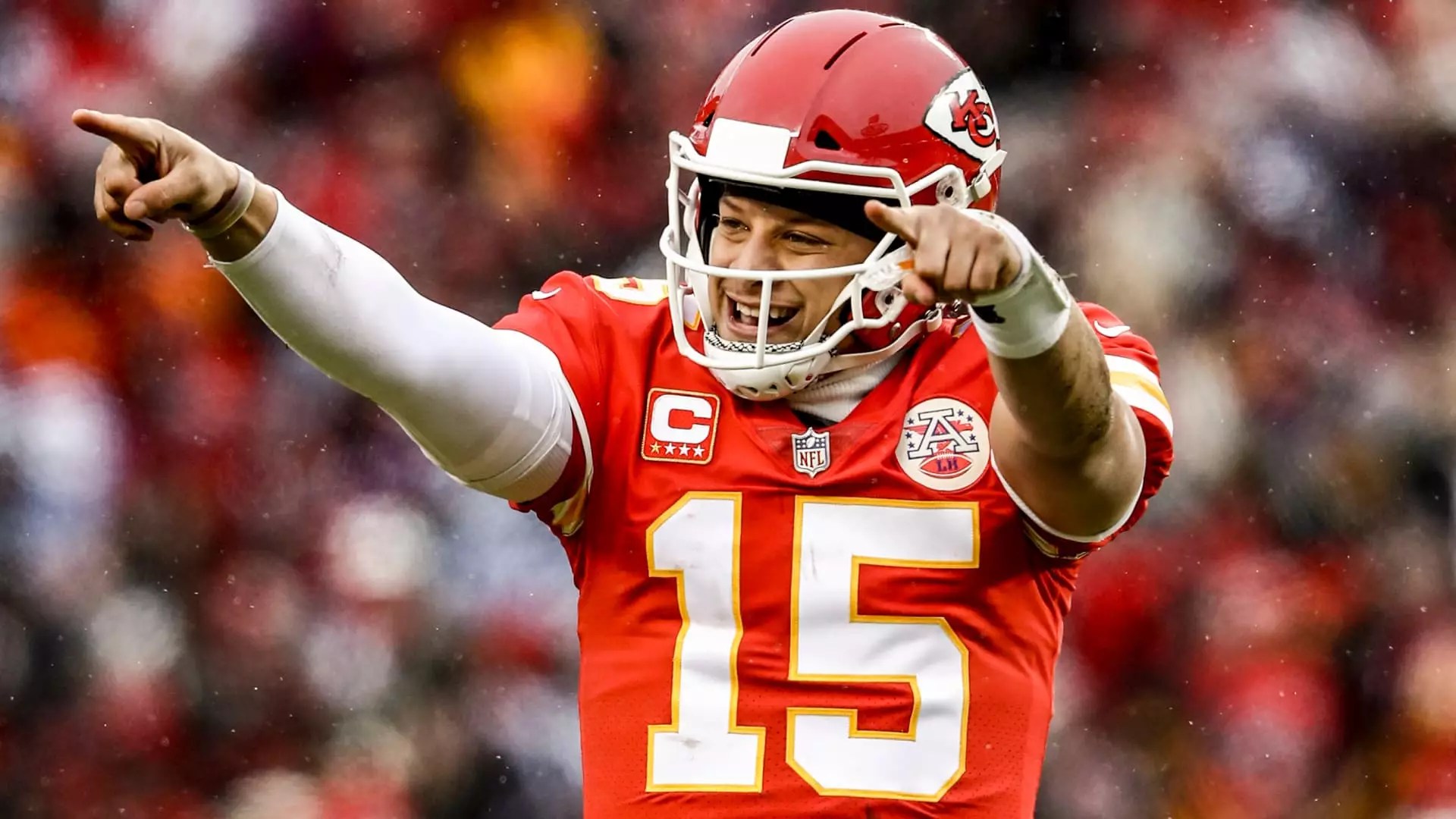Patrick Mahomes is celebrated as the quintessential NFL phenomenon—heroic on the field, charismatic off it, and now branching into entrepreneurial ventures that seem to symbolize modern sports stardom. However, beneath this glossy exterior lies a narrative often glossed over: the true sustainability of such multifaceted careers. While Mahomes’s investment in Throne Sport Coffee and diverse sports interests paint a picture of savvy foresight, it also exposes a growing dependence on personal branding that may eventually detract from his athletic prime. His transition from quarterback to entrepreneur suggests an allure of perpetual relevance rather than a genuine passion for business. It’s crucial to question whether this expanded portfolio is an authentic pursuit or a strategic move driven by market pressures and a desire for legacy-building.
Coffee Business: A Trend or a Genuine Venture?
Mahomes’s foray into the ready-to-drink coffee market is intriguing, not just because it aligns with current consumer trends but because it reveals an obsession with health-conscious branding. His endorsement of Throne Sport Coffee underscores an increasing shift among athletes into wellness-centric products—a smart move, perhaps, but one that raises doubts about authenticity. The emphasis on low sugar, added electrolytes, and B vitamins seems more like a marketing pitch than a sincere passion for the beverage industry. Is Mahomes genuinely interested in advancing healthier coffee options, or is this a strategic partnership to capitalize on a booming market worth billions? The latter seems more plausible, considering the saturation of the coffee industry and the proliferation of celebrity-backed products. His role as a brand ambassador and product tester, while commendable, may ultimately serve as a distraction from his primary responsibilities: maintaining peak athletic performance.
The Illusion of Community and Investment
Mahomes’s investments in sports teams like the Royals, Sporting Kansas City, and the NWSL’s KC Current reinforce a narrative of community-oriented entrepreneurship. Yet, this narrative deserves critical scrutiny. While it’s admirable to see athletes investing in local and national teams, these moves often carry a hidden motive—not social contribution but capital appreciation, brand expansion, and influence. His expressed love for sports as a “way to bring people together” sounds inspiring, but the reality of sports investments often involves behind-the-scenes politics, economic risks, and the pursuit of financial gains disguised in community-oriented language. Moreover, Mahomes’s potential future ownership of the Chiefs, although romanticized, could become a complex web of commitments, conflicts of interest, and league politics—raising questions about whether he’s shaping a genuine legacy or simply securing his financial future.
Stadium Politics and the Future of Kansas City Football
The ongoing debate surrounding Arrowhead Stadium’s future is emblematic of how politicians, franchise owners, and star athletes play a role in community development. Mahomes’s remarks about the possible renovation versus new stadium construction highlight a broader issue: the challenge of balancing tradition against modernization. His ambivalence hints at a strategic fallback—if a new stadium spells financial windfalls, then legacy and sentiment are secondary considerations. Yet, his vocal support for “wherever we play” dismisses the nuanced negotiations and heavy economic investments involved. It subtly showcases an athlete’s limited influence in complex urban development but also indicts the NFL’s tendency to leverage star power for expansive projects, often at taxpayers’ expense.
League-wide Challenges: The Risks of Expansion and Increased Play
Mahomes’s cautious stance on expanding the NFL schedule to 18 games and the league’s international ambitions exposes a crucial tension. While the league pushes for more games and global markets, the real concern remains player health and safety. Mahomes’s call for more bye weeks is a rare act of self-awareness among elite athletes—acknowledging the physical toll that relentless schedules impose. The push for international games, including the Brazil opener, exemplifies a strategic gamble: global expansion may boost revenue but risks alienating players and fans who prioritize the sport’s integrity and their well-being. Mahomes’s position, though centered in player health, also subtly aligns with a desire to retain his athletic longevity—an honesty that stands out amid league spin and corporate interests.
The Unavoidable Reality of a Superstar’s Complex Legacy
In reality, Mahomes embodies a modern sports star: hyper-commercialized, multifaceted, and constantly seeking to cement a lasting legacy. Yet, this pursuit is riddled with contradictions—riding the wave of popularity while charting the uncharted waters of business ventures that may or may not withstand the test of time. His investments, while seemingly diverse and community-oriented, are reminders of the increasing commodification of athletes’ identities. Whether Mahomes becomes Kansas City’s future owner or merely its beloved face, the underlying truth remains: the career of a superhero is inherently fragile, susceptible to the unpredictable tides of markets, health, and public opinion. Only time will reveal if his ambitions are rooted in genuine passion or a carefully curated image that balances athletic greatness with commercial acumen—sometimes at the expense of authenticity.


Leave a Reply